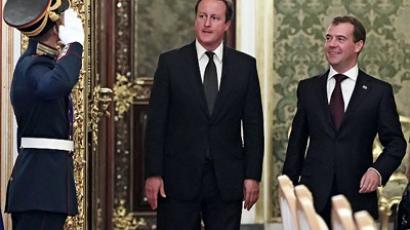Litvinenko: Case about-face
The Russian Investigative Committee has launched a criminal case into the attempted murder of State Duma Deputy Andrei Lugovoi, a former security officer and colleague of poisoning victim Aleksandr Litvinenko.
The Investigative Committee reported on Wednesday it had proof that Andrei Lugovoi was poisoned with polonium when he communicated with Aleksandr Litvinenko in London in October and November 2006. The committee’s spokesman Vladimir Markin said on Wednesday. Markin noted that his agency continued the investigation into the criminal case started after the murder of Litvinenko and attempted murder of Dmitry Kovtun, and now the attempted murder of Lugovoi will be unified with this case. Kovtun and Lugovoi are recognized as aggrieved parties in the criminal case, the official said.Lugovoi confirmed the news on Wednesday and said he was satisfied with such development. “I confirm that the criminal case has been started. I am satisfied with this decision as for five years I have been saying that I am a victim both physically and from the moral point of view,” RIA-Novosti news agency quoted Lugovoi as saying. Former FSB officer Aleksandr Litvinenko died in London on November 23, 2006. Investigators said that he had been poisoned with an expensive and rare radioactive isotope, polonium 210. British police suspect Litvinenko’s friend and former colleague Andrei Lugovoi of the poisoning and continue to demand that Russia extradite Lugovoi for questioning and investigation.Russian law enforcers so far maintain that it is most likely that Litvinenko accidentally poisoned himself when he took part in an illegal polonium sale, and Lugovoi and Kovtun were accidentally contaminated when they met Litvinenko. The Russian Constitution does not allow the extradition of Russian citizens for trial in other countries, but Lugovoi repeatedly offered to meet British investigators in Russia and to answer their questions. Lugovoi and Litvinenko share the same background as FSB officers, but they also had strong connections with Boris Berezovsky – a former Kremlin insider who fled to Great Britain after facing criminal charges in Russia over large-scale financial crimes. Lugovoi even served a prison sentence after a Russian court found him guilty of preparing and assisting the escape of another Berezovsky’s associate – a senior executive of the Aeroflot airline company Nikolai Glushkov. In his Wednesday comments, Lugovoi hinted at Berezovsky’s possible complicity in Litvinenko’s poisoning. “In essence, Berezovsky controlled the whole process, including Litvinenko himself. Berezovsky is an enemy of the state,” Lugovoi said.














